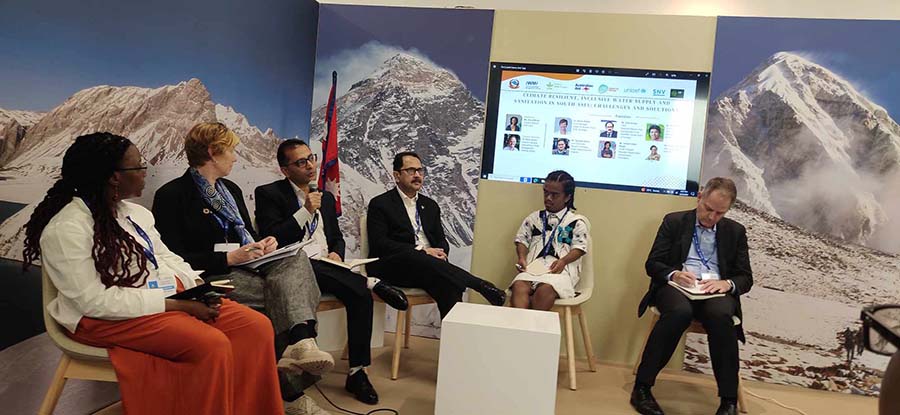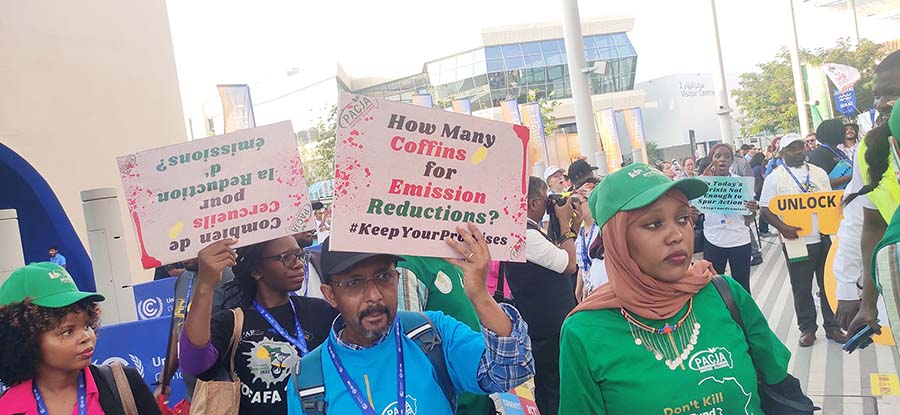
DUBAI-Experts and representatives from various nations convened to address the escalating pressure on water resources attributed to climate change. Stressing the need for increased budgets and resources to tackle the issue, they highlighted a program organized by the International Water Management Institution (IWMI) on December 9th at the Nepal Pavilion during the Conference of Parties COP-28.
Manohara Khadka, the Country Representative of IWMI Nepal, emphasized the worsening climate crisis impacting sectors such as human health, sanitation, mobility, agriculture, and drinking water. "In the context of Nepal, the budget allocated to the water sector is insufficient," she added. "To address the challenges in water and sanitation, there is a critical need to augment the budget."
Sanjeeb Baral, General Secretary of the Ministry of Water Resource and Irrigation, acknowledged Nepal's rich water resources but highlighted the scarcity during the winter season. "Eight months of the year are dry, presenting a challenging situation," he said. "The government is prioritizing the development of relevant policies to address this issue. Additionally, the monsoon season brings climate-induced challenges like floods and landslides."
Farai Tunhama, a senior advisor of UNICEF, underscored the global increase in water issues due to climate change. "The challenges in the water and sanitation sector are universal," Tunhama stated. "Water is a fundamental need, and we must prioritize it."
Bilal Anwar, representing the National Disaster Risk Management Fund of the Government of Pakistan, highlighted significant property losses in his country due to climate change. "We lost 30 billion USD in the past two years due to floods," he added. "This is a serious issue, with abnormal precipitation during the monsoon season."
Umesh Balal Magar, Youth Program Manager at the Nepal Water Conservation Foundation, pointed out the cultural and human mobility impacts of climate change on water resources. Participants in the session, representing various countries, expressed their concerns about the escalating water crises globally.
